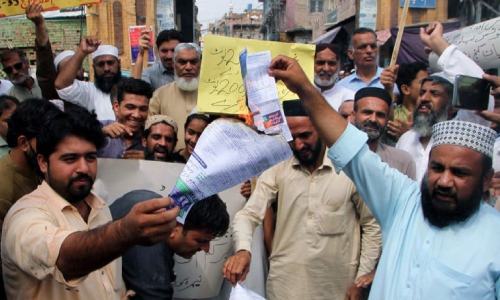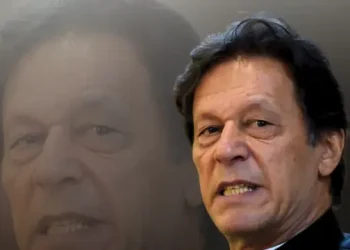ISLAMABAD: Caretaker Prime Minister Anwar-ul-Haq Kakar has urgently summoned a meeting scheduled for tomorrow at the Prime Minister’s House to address the pressing concern regarding the escalating electricity bills.
The announcement was made through the Prime Minister’s official account on the microblogging platform X, commonly referred to as Twitter. During this meeting, the Ministry of Energy (Power Division) and distribution companies will provide briefings.
The primary objective of the meeting is to explore measures that can offer significant relief to consumers dealing with the surge in electricity bills. PM Kakar emphasized the importance of consultations in this regard.
بجلی کے بھاری بِلوں کے معاملے پر میں نے کل وزیر اعظم ہاؤس میں ہنگامی اجلاس طلب کر لیا ہے۔ اجلاس میں وزارت بجلی اور تقسیم کار کمپنیوں سے بریفنگ لی جائے گی اور صارفین کو بجلی کے بِلوں کے حوالے سے زیادہ سے زیادہ ریلیف دینے کے حوالے سے مشاورت کی جائے گی۔
— Anwaar ul Haq Kakar (@anwaar_kakar) August 26, 2023
The surge in power bills has led to widespread protests across the country, including cities like Karachi, Rawalpindi, Multan, Gujranwala, and Peshawar. In Karachi, the Jamaat-e-Islami (JI) conducted demonstrations at various locations, expressing discontent over the substantial rise in power bills and alleging excessive charges by K-Electric (KE).
Meanwhile, in Rawalpindi, protestors assembled at Committee Chowk, setting fire to bills as they demanded the government to eliminate imposed taxes on electricity. Similarly, in Peshawar, demonstrators deemed the increase in electricity bills as unbearable and urged the government to provide relief.
Gujranwala saw protesters congregating at the Gujranwala Electric Power Company office to voice their opposition against the high costs of electricity. Similar protests unfolded in other cities like Narowal, Attock, Sargodha, and Haripur, all united against the burden of high power bills.
In July, the former federal cabinet granted approval for a substantial hike in the base tariff of electricity, reaching up to Rs7.50 per unit. This increase surpassed the national average tariff set by the power regulator National Electric Power Regulatory Authority (Nepra), which was Rs4.96. Nepra attributed the tariff increase to factors such as the devaluation of the rupee, elevated inflation and interest rates, expansion of capacity, and sluggish sales growth. However, the increase was also influenced by a requirement set by the International Monetary Fund (IMF) for the implementation of structural reforms in the energy sector.
It’s important to note that the effective tariff would be even higher after factoring in surcharges, taxes, duties, levies, as well as monthly and quarterly adjustments.
(Islamabad51-Newsdesk)














